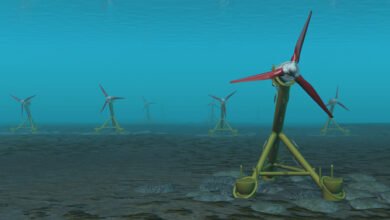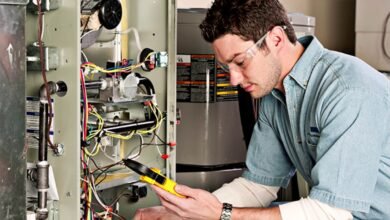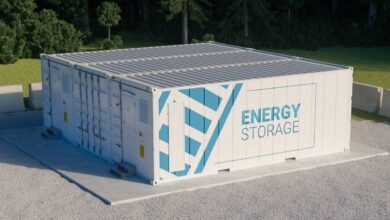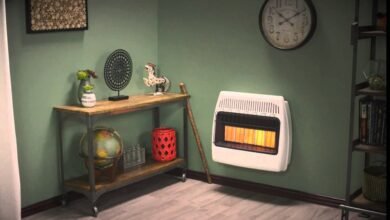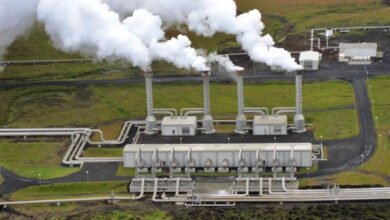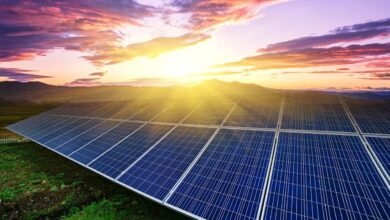Introduction
We are presenting the backbone of everyday comfort – water heaters. In everyday life, having a supply of hot water is extremely necessary. The Hot Water Heater Guide is essential for doing dishes or taking a warm wash. Homeowners have to understand the significance and utility of those things. This complete guide delves into the world of water heaters, exploring their workings, types, assignment criteria, supervision, and more. Join us as we disentangle the mysteries after staying comfortably warm.

How Hot Water Heaters Work
Water heaters work by heating water utilizing thermostats and heating elements, delivering a constant supply of hot wetness.

-
Basic Functionality
Supplying hot water as required is the main function of water heaters. The fluid in the tank is heated by the gadget’s inside heating element, which operates on gas or electricity. The thermostat’s control panel ensures the temperature continues at the appropriate level even as it rises. When you rely on a tap, hot water leaks out, filling the tank with cold water that burns up to provide constant warmth.
-
Types of Hot Water Heaters
Water for drinking heaters comes in various styles to accommodate different requirements and preferences. Tankless water heaters, for example, conserve space by only heating water whenever required without needing a tank to hold the water. However, hot water is always accessible in heating systems that include tanks for storage since they store the hot water there. Heat pump water heaters take heat from the surrounding air to heat water in a container, whereas light-powered heaters use solar energy. To choose the ideal thermostat for your home, you must be aware of all these options.
Choosing the Right Hot Water Heater
For optimal performance, selecting the ideal Hot Water Heater Guide involves considering household size, energy efficiency, and space limitations.

-
Considerations for Selection
When selecting a water heater, several factors warrant consideration to ensure it effectively fulfills your requirements. First and foremost, assess the size of your home and its hot water needs. Additionally, prioritize energy efficiency ratings to minimize utility costs over time. Regarding the available space for the building, some embodiments require more room than others. Considering these aspects comprehensively, you can assemble an informed conclusion that aligns with your necessities and budget.
-
Pros and Cons of Different Types
Every water heater has benefits and disadvantages. For instance, tankless water heaters provide limitless hot water on consumer demand, but they could need support to meet contemporary demand for the product. Warehouse water heaters with tanks present a constant hot water supply, though they require extensive space for building. Water heaters with heat pumps are energy-efficient but may need to perform more effectively in freezing climates. Considering these benefits and weaknesses is necessary to select a suitable heater for your home.
Installation and Maintenance
Ensuring proper structure and regular supervision is crucial to owning a water heater for optimal implementation.

-
Maintenance Tips
Ensuring the proper functioning of your water heater requires regular upkeep. To begin with, frequently inspect the unit anode rods and restore them if corrosion is apparent. Further, flushing out sediment from the tank perennial helps maintain efficiency. Check for leaks and breakdowns regularly, restoring any issues promptly to prevent further injury. By observing these basic upkeep procedures, you can lengthen the life of your water heater and secure constant hot water availability.
Troubleshooting Common Issues
Troubleshooting typical situations can help identify the root cause of water heater problems and provide a satisfactory explanation.

-
No Hot Water
Participating in a lack of hot water can be frustrating, but several common issues could be the offender. Start by studying the thermostat settings to ensure they’re correctly adjusted. If the locations appear fine, inspect the heating components for signs of damage or malfunction. Additionally, sediment fanfare in the tank could slow heat transfer, so flushing the tank may be required. If these troubleshooting steps don’t solve the issue, consulting an experienced plumber for further contribution is best.
-
Water Leaks
Water leaks from a water heater can signal problems requiring prompt attention. Begin by inspecting the tank and connections for visible signs of leakage. Pulling loose connections or replacing harmed parts may solve the problem. When the leak persists, it may be a sign of corruption or an improperly functioning pressure relief valve, requiring expert repair or replacement. Water leaks must be fixed right away to ensure the continued blamelessness of your hot water system. Ignoring them can harm your property and cause higher utility costs.
-
Strange Noises
Unusual sounds from your water heater could be troubling, but you may fix the problem by knowing its possible beginnings. Slag accumulation in the tank, which inhibits effective heating, is frequently the source of popping or rumbling noises. Clearing the tank can resolve that problem. Excessive crashing sounds might also indicate that the heating ingredients must be cleaned or replaced due to mineral deposits. You may avoid these issues by keeping up with routine upkeep and ensuring your water heater runs smoothly and privately.
Energy Efficiency and Savings
Maximizing energy efficiency in your Hot Water Heater Guide system leads to substantial savings on utility bills while reducing environmental impact.

-
Calculating Energy Savings
Energy usage, fuel type, and energy ratings are some factors that estimate energy protection from a wetness heater. To begin with, figure out how much power you use now and compare it to what you could save by changing to a more energy-saving appliance. Consider variables such as insulation, furnace settings, and consumption habits to estimate savings effectively. It would help if you also looked into any available rebates or incentives for efficiency in terms of energy changes. You can make a wise choice that lowers your carbon footprint and saves money by doing a detailed investigation.
-
Energy-Efficient Features
Modern water heaters are fitted with energy-efficient technologies that maximize performance while reducing environmental impact. Insulation is essential for lowering heat loss and raising general efficiency. Heat traps help save even more gasoline by keeping heat from escaping via the pipes. High-efficiency versions use advanced technology to optimize warming processes while decreasing energy usage. In addition, users of programmable thermostats may tailor heating plans to maximize performance according to consumption trends. Buying a water heater with those characteristics might save considerable energy over time.
Safety Precautions
Ensuring safety precautions when using water heaters is paramount for preventing accidents and providing peace of mind.

-
Preventing Scalding
Several security measures must be followed to avoid scalding events connected to water heaters. Positioning anti-scald widgets, such as thermostatic mixing valves, helps maintain the temperature of the water to keep it from growing too high. Scalding can be further reduced by placing the water heater thermostat at a safe temperature, usually roughly 120 degrees Fahrenheit (49 grades Celsius). Reducing accidents also requires teaching everyone in the household—especially the elderly and young—about the risks associated with hot water and how to work with presses and showers.
-
Carbon Monoxide Safety
Carbon monoxide (CO) safety is essential when operating gas-powered water heaters to contain potentially life-threatening orientation. Proper ventilation is required to ensure CO does not earn indoors. Regularly checking vents and flues for stoppages or damage helps maintain proper airflow and prevents CO advertisement. Installing CO detectors near resting areas and every home deck provides early warning of leaks. Also, scheduling annual maintenance checks by a qualified mechanic ensures the safe process of your water heater.
Upgrading Your Hot Water Heater
When elevating your water heater, assessing your regular needs and energy efficiency goals is essential.

-
Signs You Need an Upgrade
Identifying signs that show the need for a water heater promotion can help prevent unexpected analyses and enhance efficiency. If your current unit is closing its expected lifespan of 8 to 12 years, experiencing frequent leaks or corrosion, or working to meet your family’s hot water demands, it may be time for an upgrade. Also, significant increases in energy bills could signal inefficiency, prompting concern for a more energy-efficient model.
-
Benefits of Upgrading
Boosting your water heater offers multiple benefits that enhance comfort, efficiency, and cost savings. A new unit can improve performance consistently by delivering hot water more efficiently. Energy-efficient models not only reduce utility bills but also underestimate environmental impact. Additionally, cutting-edge features such as programmable thermostats and leak detection systems offer counted convenience and peace of intellect. With a water heater promotion, you can enjoy a reliable hot water supply while maximizing energy protection and modern amenities.
Conclusion
In conclusion, comprehending the complexities of the Hot Water Heater Guide is essential to keeping a relaxed and efficient home. By grasping their basic functionality, selecting the right style, and implementing proper installation and care practices, homeowners can ensure uninterrupted access to hot water while optimizing energy efficiency and safety. Regular monitoring and timely upgrades, when essential, enhance performance and decrease the risk of unexpected breakdowns. With these concerns, homeowners can enjoy a reliable hot water supply and peace of marbles for years.
FAQs (Repeatedly Requested Inquiries)
What is the bare essential height needed for a water heater in my house?
The size of the moisture heater required for your home depends on aspects such as the number of subjects, hot water use habits, and the unit's efficiency. A skilled plumber can help determine the proper size for your residence.
Are tankless water heaters more energy-efficient than shown tank-style heaters?
Generally, water heaters with no tanks consume less energy than conventional tank-style heaters because they only heat water when necessary, avoiding the standby heat loss encountered with holding tank heaters.
How can I make my moist heater more energy-effective in its operations?
Lowering the temperature in your house, covering your hot water pipes, and selecting a high-efficiency model are some options to improve your energy consumption. Routine upkeep, such as flushing deposition fanfare, can also improve efficiency.
Is it secure to inaugurate a moisture heater myself?
While some homeowners may arrange to install their moisture heaters themselves, hiring a qualified plumber is typically urged to ensure their security and accurate functioning.

